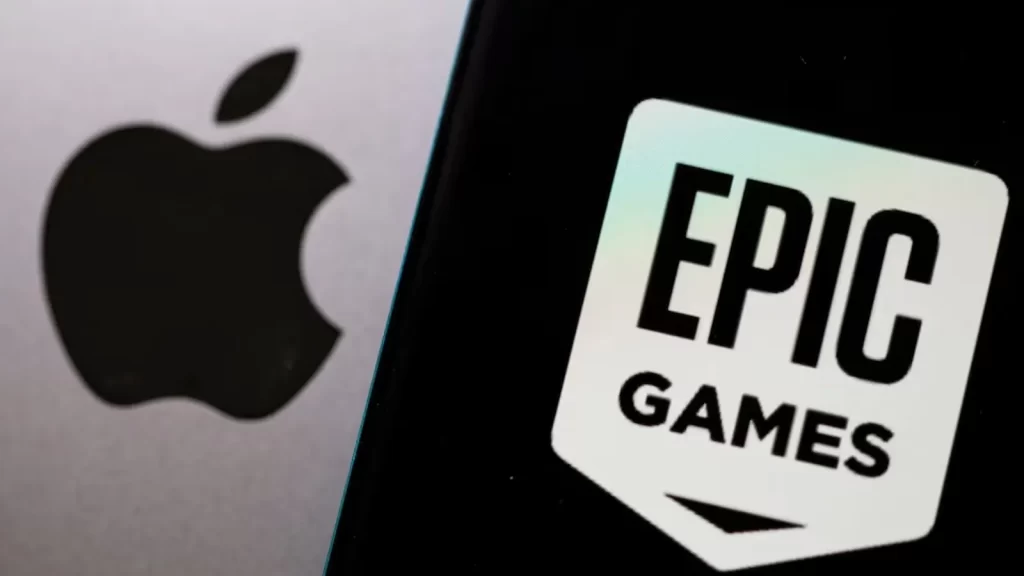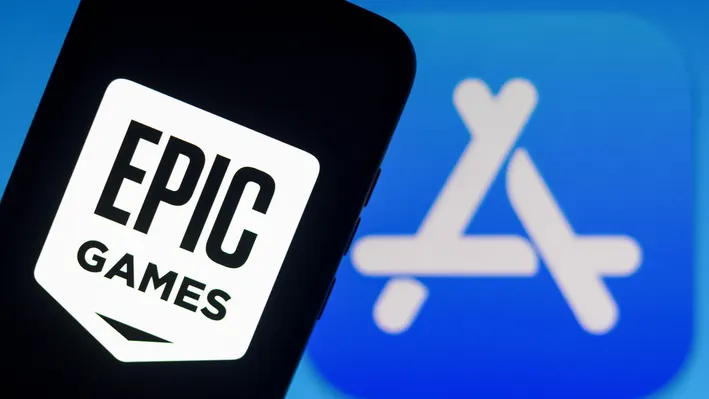In a surprising turn of events, Apple has approved the third-party Epic Games Store for distribution within the European Union. This approval allows the Fortnite developer to launch its alternative app marketplace across EU countries, marking a significant milestone in the ongoing legal tussle between the two tech giants. The decision, reported by Reuters, follows a contentious series of rejections earlier in the week.
The Notarization Journey
Epic Games had submitted the Epic Games Store to Apple for notarization earlier this week. Notarization is a process required by Apple to ensure that apps distributed outside the App Store meet certain security and performance standards.

Initially, Apple rejected the submission twice, citing similarities between Epic’s “Install” button and “in-app purchases” labels and those of Apple’s own App Store elements. This rejection prompted a swift and vehement response from Epic.
Epic’s Objection and the Digital Markets Act
Epic argued that Apple’s rejections were “arbitrary, obstructive, and in violation of the Digital Markets Act (DMA).” The DMA is a landmark piece of legislation by the European Union aimed at ensuring fair competition and curbing monopolistic practices by large digital platforms. Epic contended that Apple’s refusal to notarize its store was an attempt to stifle competition and maintain its monopoly over app distribution on iOS devices.
In response to Apple’s rejections, Epic reported the issue to the European Commission, the executive body responsible for enforcing EU competition law. The Commission has been increasingly vigilant about ensuring compliance with the DMA, and Epic’s report likely intensified scrutiny on Apple’s practices.
Apple’s Change of Heart
After Epic’s public denouncement and appeal to the European Commission, Apple relented and approved the Epic Games Store. This decision is seen as a significant victory for Epic and a potential shift in Apple’s approach to third-party app stores in regions governed by the DMA.

Apple’s approval of the Epic Games Store not only marks a win for Epic but also sets a precedent for other developers seeking to establish alternative app marketplaces within the EU. It demonstrates the potential impact of the DMA in leveling the playing field and fostering a more competitive digital ecosystem.
A Brief History of the Apple-Epic Feud
The approval comes against the backdrop of a prolonged legal battle between Apple and Epic Games that has spanned several years. The conflict began in August 2020 when Epic introduced a direct payment system within Fortnite, bypassing Apple’s 30% commission fee. Apple responded by removing Fortnite from the App Store, prompting Epic to file a lawsuit alleging antitrust violations.
The case, which went to trial in 2021, resulted in a mixed verdict. While the court ruled that Apple was not a monopoly, it also found that Apple’s anti-steering provisions, which prevented developers from informing users about alternative payment options, were anticompetitive. Both parties appealed aspects of the ruling, and the legal battle continues to this day.
Implications for the Future
Apple’s approval of the Epic Games Store in the EU could have far-reaching implications for the app distribution landscape. It signals a potential shift in Apple’s stringent control over its ecosystem, especially in jurisdictions with robust antitrust regulations like the EU. This development could embolden other developers to challenge Apple’s policies and seek alternative avenues for app distribution.

For consumers, the introduction of third-party app stores like the Epic Games Store means more choices and potentially lower prices. Alternative marketplaces can offer competitive pricing, exclusive deals, and a broader selection of apps, enhancing the overall user experience.
The Role of the Digital Markets Act
The DMA, which came into effect in early 2023, aims to curb the dominance of large digital “gatekeepers” like Apple and Google. It imposes strict rules on companies with substantial market power, including requirements to allow third-party app stores and payment systems. The DMA is part of the EU’s broader strategy to ensure a fair and competitive digital market, and its enforcement is already reshaping the landscape.
Apple’s approval of the Epic Games Store underscores the influence of the DMA and the EU’s commitment to fostering competition. As the DMA continues to be implemented and enforced, it is likely to drive further changes in the practices of major digital platforms.
Conclusion
Apple’s decision to approve the Epic Games Store in the EU marks a significant development in the ongoing struggle between the two companies. It highlights the growing influence of regulatory frameworks like the Digital Markets Act in promoting competition and curbing monopolistic practices. For Epic Games, this approval is a crucial step forward in its quest to challenge Apple’s dominance and expand its own marketplace.
As the digital landscape continues to evolve, the impact of this decision will be closely watched by developers, regulators, and consumers alike. It serves as a reminder that even the most powerful tech giants must adapt to the changing regulatory environment and the demands for a more open and competitive market.












